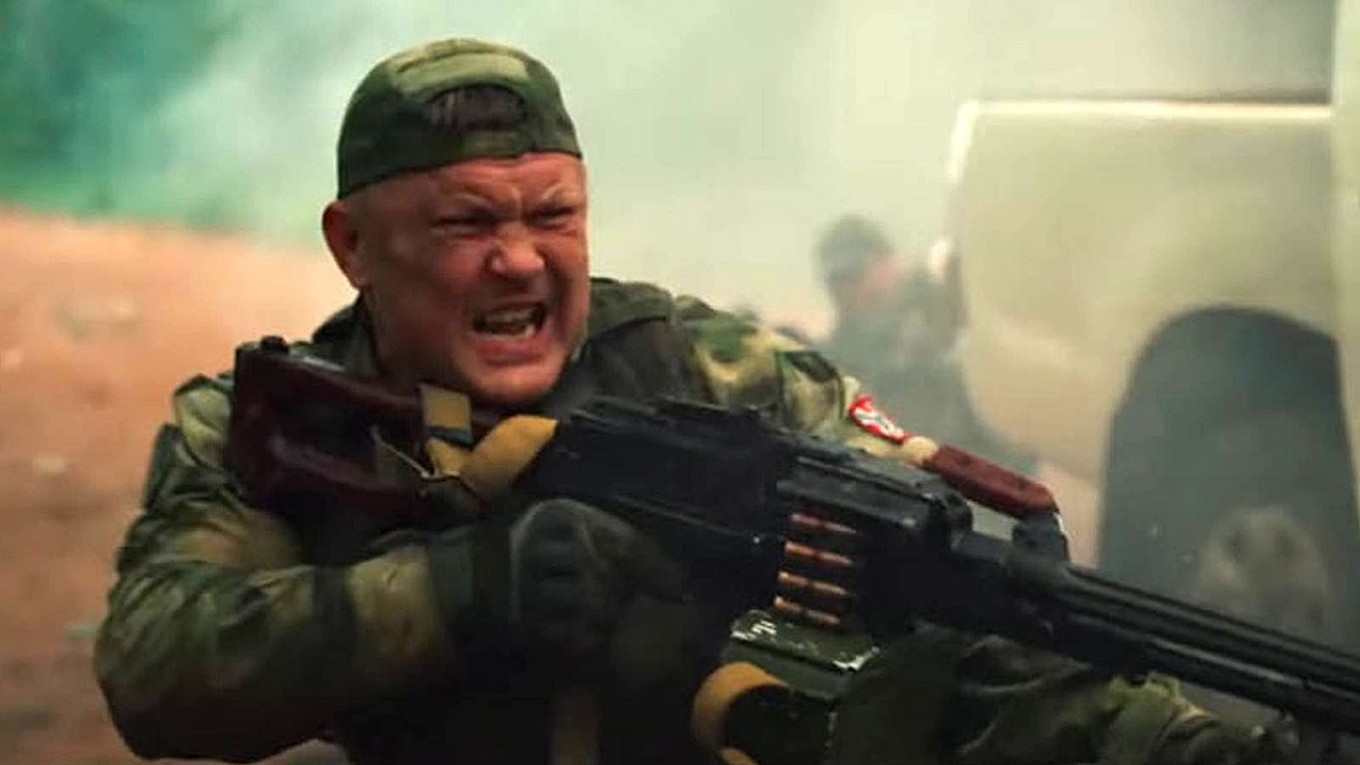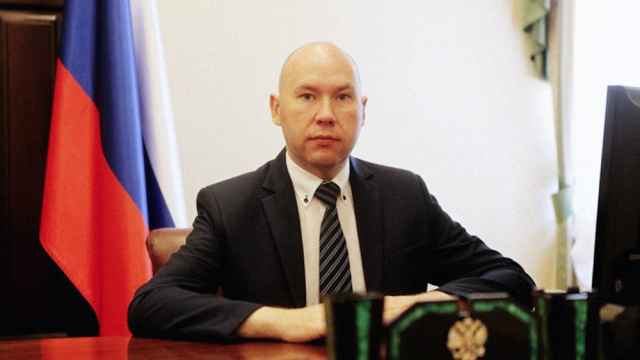A new movie backed by Kremlin-linked catering magnate Yevgeny Prigozhin depicts a group of Russian “military instructors” invited to Mozambique to fight Islamic State-linked insurgents in the country’s north.
“Granit,” set to premiere next Tuesday on the government-friendly NTV channel, is produced by Aurum, a company in which Prigozhin holds a major stake, according to Russia’s public registry.
The movie — whose trailer says is dedicated to “our Russian guys” — depicts the real-life events involving Russian mercenaries who fought in Mozambique’s northern Cabo Delgado region in 2019, its director Denis Neymand told The Moscow Times.
“The movie was completely based on a Russian private military company in Mozambique. All of this happened in real life,” said Neymand, who also confirmed that Aurum ordered the production of the movie.
The Moscow Times, along with other outlets, earlier reported on how hundreds of Russian soldiers fighting for private military company Wagner were deployed in Mozambique, with at least seven of them killed by the Islamic insurgents.
Units of the secretive Wagner group have been seen in several conflict zones, allegedly serving Russian private and state interests in Ukraine, Syria and Libya. The group has recently stepped up its efforts on the African continent, fighting in Mozambique and the Central African Republic, and were reportedly invited to Mali this fall.
Neymand said it “wasn’t a secret” during filming that the mercenaries on which the movie is based belonged to the Wagner group.
“But we didn’t name them in the movie because it doesn’t really matter which private military company operates there. The movie is about showing how Russian guys help Africans against evil forces,” he said, adding that the movie was filmed in the Central African Republic, where Russia has a military presence.
The Kremlin in 2019 denied that Russian soldiers were active in Mozambique, while Prigozhin has repeatedly said he has no links to Wagner and has sued media outlets for reporting his alleged connections to the mercenary group.
But a number of recent movies produced by Prigozhin-linked firms, including Aurum and the St. Petersburg-based Paritet Film studio, depict Russian “instructors” fighting in eastern Ukraine and the Central African Republic — places where Wagner fighters have also reported to have been active. These movies — which share much of the same acting crew — appear to shed further light on Prigozhin’s links with Wagner.
The EU earlier this month slapped sanctions on the group for destabilizing Ukraine and parts of Africa.
Prigozhin was not immediately available for comment.
Aurum was also behind the film “The Tourist,” which tells the story of a group of young Russian military advisors sent to CAR on the eve of its 2020 presidential elections. Numerous NGOs as well as independent UN observers say that these instructors are in fact paramilitaries from the Wagner Group. A March report by a group of independent UN experts said Wagner mercenaries have committed human rights abuses in CAR.
Aurum additionally holds distribution rights for the film “Shugalei,” a movie also directed by Neymand which claims to tell the true story of Maxim Shugalei, a Russian political operative believed to be close to Prigozhin who has spent time in Libyan prison on accusations of meddling in the country’s internal affairs.
A Message from The Moscow Times:
Dear readers,
We are facing unprecedented challenges. Russia's Prosecutor General's Office has designated The Moscow Times as an "undesirable" organization, criminalizing our work and putting our staff at risk of prosecution. This follows our earlier unjust labeling as a "foreign agent."
These actions are direct attempts to silence independent journalism in Russia. The authorities claim our work "discredits the decisions of the Russian leadership." We see things differently: we strive to provide accurate, unbiased reporting on Russia.
We, the journalists of The Moscow Times, refuse to be silenced. But to continue our work, we need your help.
Your support, no matter how small, makes a world of difference. If you can, please support us monthly starting from just $2. It's quick to set up, and every contribution makes a significant impact.
By supporting The Moscow Times, you're defending open, independent journalism in the face of repression. Thank you for standing with us.
Remind me later.







